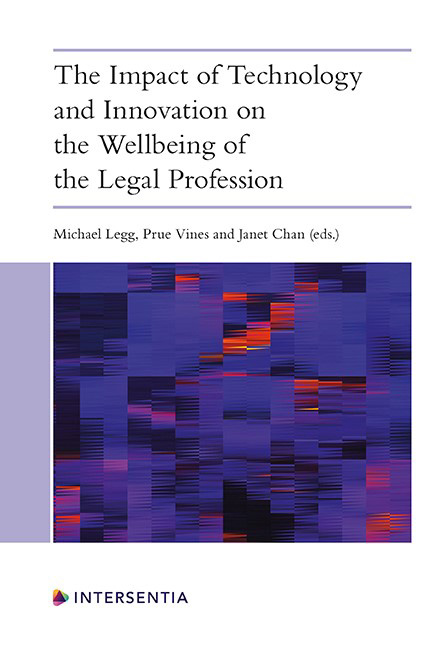Chapter 9 - Do Law Firm Structures Matter? Incorporated Legal Practices and the Health and Wellbeing of Lawyers
Published online by Cambridge University Press: 22 December 2020
Summary
INTRODUCTION
On 24 August 2018 mega-law firm King & Wood Mallesons received an ‘Improvement Notice‘ from the health and safety regulator in Victoria, in relation to ‘the management of employee fatigue in high pressure situations. ‘The Improvement Notice was prompted by a complaint that legal practitioners in the firm‘s Melbourne office had been subject to gruelling working conditions as a result of tight deadlines imposed by the Royal Commission into Banking and Finance in Australia. The Improvement Notice is believed to be the first of its kind in Australia in relation to a law firm. Minds Count (formerly the Tristan Jepson Memorial Foundation) described the Notice as a‘ watershed moment for the legal profession in Australia‘ and tweeted as follows:
The genuine health-risks of excessive work pressure and stress in legal workplaces should be well understood. Depression, anxiety, alcoholism and suicide are all well-established as potential outcomes. The risks are real, and the consequences can be devastating.
The health and wellbeing of legal practitioners in Australia has attracted considerable academic and media attention over the past few decades. Research studies indicate that the extent to which Australian legal practitioners suffer from depression and mental illness as a result of their work, as compared to the general population, is alarming. Recent law graduates and young legal practitioners are at most risk of suffering ill health as a result of practising law. The stress of lawyering on recent graduates and young legal practitioners is so immense that an unprecedented number of young legal practitioners have left the profession. The discourse in relation to mental health and wellbeing in the legal profession identifies a number of causal factors that are said to contribute to higher rates of depression and lower levels of wellbeing in legal practitioners. These factors include particular personality traits such as perfectionism, pessimism and anxiety as well as particular workplace demands typical of the traditional law firm partnership structure.
The impact of workplace demands, particularly as a legal practitioner practising in a traditional law firm partnership structure, is immense.
- Type
- Chapter
- Information
- Publisher: IntersentiaPrint publication year: 2020



